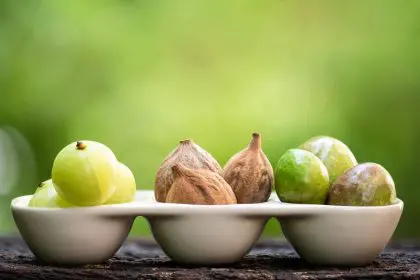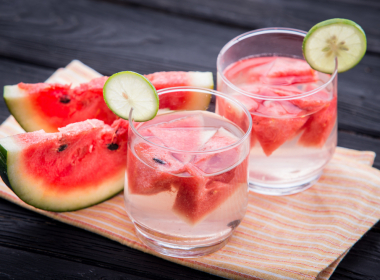The quest for maintaining natural hair color has led researchers to an unexpected source: a powerful plant compound found in everyday vegetables. This antioxidant, known as luteolin, demonstrates intriguing potential in preventing premature graying through its unique biological properties.
Understanding the compound
Luteolin is a naturally occurring antioxidant found in a variety of vegetables and herbs. Its role in human health has been widely studied, particularly in relation to its anti-inflammatory and neuroprotective properties. However, recent research has uncovered a potential link between luteolin and hair pigmentation, suggesting that this compound may help slow or even prevent the graying process.
Hair color is determined by melanin, a pigment produced by specialized cells known as melanocytes. As people age, melanocyte function declines, leading to a gradual loss of pigment and the emergence of gray or white hair. Scientists believe luteolin may help preserve melanin production by combating oxidative stress, a major contributor to hair aging.
Scientific breakthrough findings
Recent studies published in Antioxidants have provided compelling evidence supporting the idea that luteolin can influence hair pigmentation. Laboratory research suggests that this compound may help protect melanocytes from oxidative damage, potentially extending their lifespan and preserving hair color.
One study observed that luteolin enhances the activity of certain enzymes involved in melanin production. This effect could explain why individuals who consume luteolin-rich diets tend to show fewer signs of premature graying. While these findings are promising, researchers emphasize that further clinical trials are needed to confirm the long-term benefits of luteolin for hair health.
Natural sources of luteolin
Luteolin is widely available in plant-based foods, making it easy to incorporate into a daily diet. Some of the richest sources include:
Leafy green vegetables: Spinach, kale, and parsley contain high concentrations of luteolin, making them excellent dietary choices for maintaining hair pigmentation.
Cruciferous vegetables: Broccoli, cabbage, and Brussels sprouts provide additional sources of this powerful antioxidant, contributing to overall cellular health.
Root vegetables: Carrots and celery contain notable amounts of luteolin, supporting not only hair health but also skin and immune function.
Common herbs: Thyme, rosemary, and oregano are particularly rich in luteolin, offering an easy way to boost intake through culinary seasoning.
Healthy oils: Olive oil contains smaller amounts of luteolin, but its antioxidant properties may complement other dietary sources.
Biological mechanisms
The link between luteolin and hair pigmentation lies in its ability to neutralize free radicals—unstable molecules that cause cellular damage. Oxidative stress is a key factor in aging, contributing to the deterioration of melanocytes over time. By reducing oxidative damage, luteolin may help maintain melanocyte function, delaying the onset of gray hair.
Additionally, luteolin has been found to regulate signaling pathways involved in melanin synthesis. Some researchers believe it may stimulate melanin production, potentially counteracting the gradual pigment loss associated with aging. However, these effects have primarily been observed in controlled laboratory settings, meaning more research is necessary before drawing definitive conclusions.
Practical dietary applications
Incorporating luteolin-rich foods into a daily diet offers potential benefits beyond hair health. Many of the vegetables and herbs that contain this compound are also associated with reduced inflammation, improved cardiovascular function, and enhanced brain health.
While dietary changes alone may not completely prevent gray hair, consuming a nutrient-rich diet can support overall cellular health. Individuals looking to maintain their natural hair color may benefit from increasing their intake of luteolin-containing foods while also adopting other healthy lifestyle habits, such as managing stress and avoiding excessive sun exposure.
Future research directions
The preliminary findings surrounding luteolin’s effects on hair pigmentation open new avenues for anti-aging research. Scientists are now exploring whether targeted luteolin supplementation could provide a practical solution for preventing gray hair. If proven effective, this could lead to the development of natural, plant-based treatments designed to preserve hair color without the need for chemical dyes.
While these discoveries are still in their early stages, they contribute to the growing understanding of how diet and nutrition influence hair health. The intersection of nutrition and hair aging presents exciting opportunities for developing natural strategies to maintain hair color. As research continues, the potential for luteolin as a natural defense against premature graying remains an intriguing prospect.















